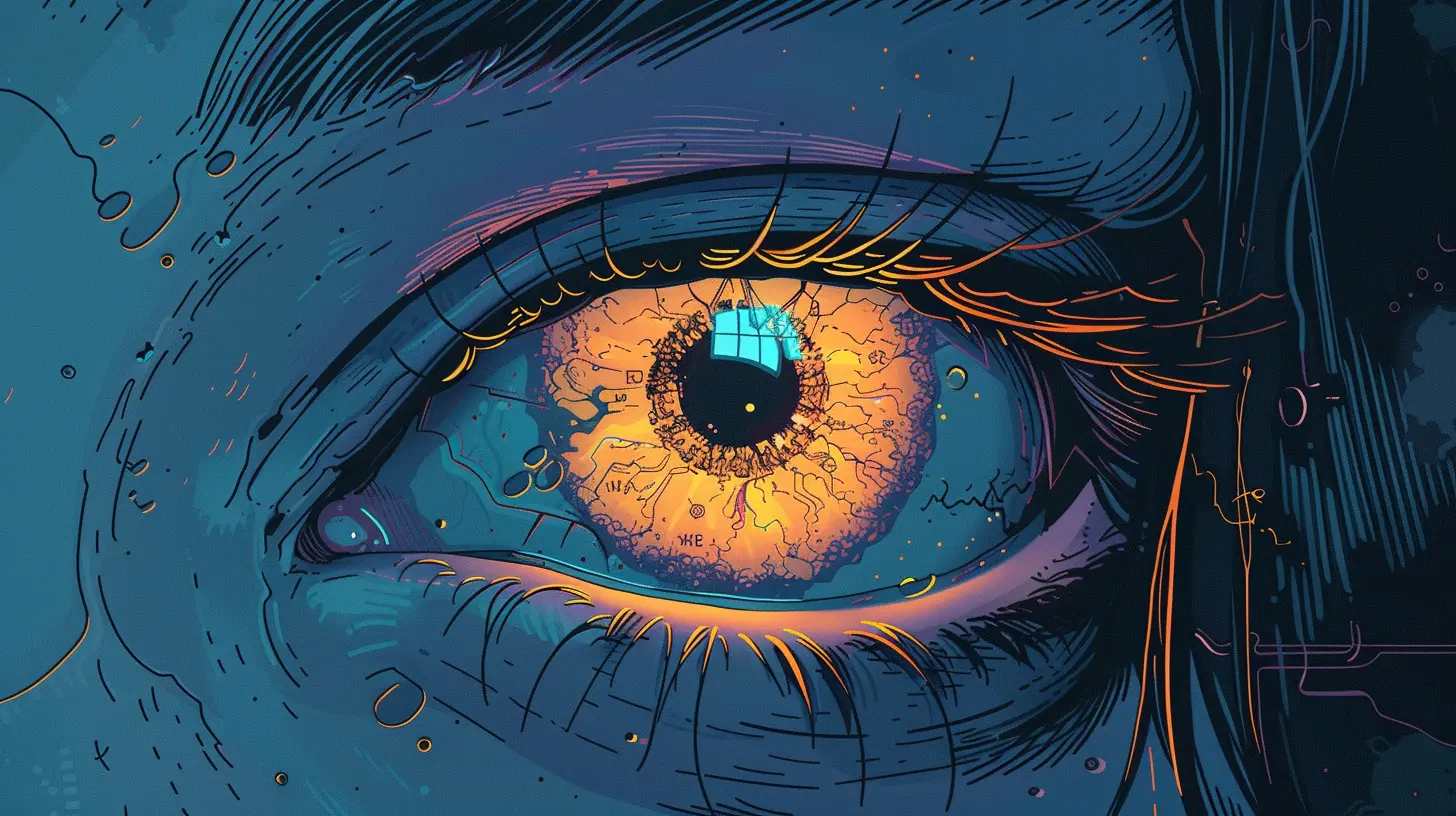Open Source and the Future of Digital Privacy
13 June 2025
The digital world is evolving at a breakneck pace. With every click, tap, and scroll, we leave behind digital breadcrumbs—bits of information that companies, governments, and even malicious actors can collect, analyze, and exploit. Privacy, once something we took for granted, now feels like an endangered species.
But there's a beacon of hope in the fight for digital privacy: open source technology. Could it be the key to reclaiming control over our personal data? 
The Growing Concern Over Digital Privacy
It’s no secret—our personal data is more exposed than ever. Big Tech giants track our every move, feeding their algorithms with our habits, preferences, and even private conversations. Governments use surveillance tools under the guise of national security, and cybercriminals lurk in the shadows, waiting for the perfect moment to strike.The problem? The majority of the software and services we use operate as black boxes. We trust companies to secure our data without fully understanding what happens behind the scenes.
The paradox is clear: while technology has made our lives easier, it has also made us more vulnerable. So, how do we regain control? The answer may lie in open-source solutions. 
What is Open Source Software?
At its core, open-source software (OSS) is built on transparency. Unlike proprietary software, where only the developers know what’s under the hood, open-source projects make their source code available to everyone. Anyone can inspect, modify, and improve the software.This level of transparency creates a natural system of checks and balances. If a developer introduces shady tracking mechanisms or security flaws, the community can spot and fix them. That’s something you can’t say about closed-source software, which operates on a "trust us" model. 
Why Open Source Matters for Digital Privacy
Now that we understand what open-source software is, let's talk about why it’s a game-changer for digital privacy.1. Transparency Builds Trust
Would you drink water from a bottle without a label? Probably not—you’d want to know if it contains anything harmful. The same logic applies to software.With open-source applications, anyone with the right knowledge can audit the code to ensure there are no hidden trackers, spyware, or security vulnerabilities. This transparency fosters trust in an era where privacy scandals are all too common.
2. No Backdoors, No Secret Deals
Ever heard about government backdoors in software? Many proprietary software companies have been accused of secretly allowing governments access to user data. Since their code is closed off from public scrutiny, we have no way of confirming or denying these claims.With open-source software, backdoors are much harder to implement. Any attempt to introduce one would be quickly spotted and removed by the community. This makes OSS a safer option for individuals and organizations that prioritize privacy.
3. Stronger Security Through Collective Effort
One of the biggest misconceptions about open-source software is that it’s less secure than proprietary alternatives. In reality, the opposite is often true.Because OSS is developed in the open, vulnerabilities get identified and patched faster than in closed-source software, where security issues might remain hidden for years. When thousands of developers worldwide collaborate on a project, the chances of catching and fixing security flaws increase dramatically.
4. Empowering Users with Control
Proprietary software limits what users can do. You have to accept terms and conditions, submit to forced updates, and hope that the company is acting in your best interest. Open-source software, on the other hand, puts control back in the hands of users.Want to remove a feature? Modify the code. Concerned about a specific privacy issue? Fork the software and customize it to your needs. This level of autonomy is unheard of in the closed-source world. 
Open Source Tools Leading the Privacy Revolution
Many open-source projects are pushing back against invasive surveillance and data collection. Here are some of the most impactful ones:1. Signal (Private Messaging)
When it comes to secure messaging, Signal stands out. It's open-source, encrypted, and designed with privacy in mind—unlike some popular alternatives that have been caught collecting user metadata.2. Tor (Anonymous Browsing)
The Tor network allows users to browse the internet anonymously by bouncing traffic through multiple servers. Since it's open source, its security and privacy measures can be continuously audited.3. ProtonMail (Encrypted Email)
Based in Switzerland with a focus on privacy, ProtonMail offers end-to-end encrypted email services. Unlike Gmail, which scans emails for ad targeting, ProtonMail ensures your communications stay private.4. Linux (Operating Systems)
Unlike Windows or macOS, Linux distributions like Tails and Ubuntu give users complete control over their system—without the built-in tracking of proprietary OS platforms.5. Nextcloud (Self-Hosted Cloud Storage)
Big names like Google Drive and Dropbox store your files on their servers, potentially giving them access. Nextcloud allows you to set up your cloud on your own hardware, ensuring your data remains yours.Challenges Facing Open Source and Digital Privacy
Though open-source software provides a strong foundation for privacy, it's not without challenges.1. Usability and Adoption
Let’s be real—some open-source alternatives aren't as polished or user-friendly as their proprietary counterparts. Signal competes with WhatsApp, Linux competes with Windows, and ProtonMail competes with Gmail. While open-source projects are improving, mass adoption remains an uphill battle.2. Funding and Sustainability
Many open-source projects rely on donations, grants, or volunteer developers. Unlike Big Tech companies, they don’t have billion-dollar budgets. This can sometimes slow down development and limit resources for security improvements.3. Resistance from Governments and Corporations
Governments that thrive on surveillance aren't thrilled about open-source encryption tools. Some have even attempted to ban or restrict them. Additionally, corporations lose control when users switch to privacy-focused alternatives, which is why they often discourage the use of open-source software.The Future of Open Source and Digital Privacy
So, what does the future hold?While Big Tech and government surveillance won’t disappear overnight, the demand for secure, open-source alternatives is growing. More people are waking up to the privacy risks of proprietary software and seeking out alternatives that put them back in control.
The good news is that open-source projects are becoming more user-friendly. With advancements in design, usability, and seamless encryption, we’ll likely see mass adoption accelerate.
At the same time, policies surrounding data privacy are tightening in many regions. Regulations like GDPR in Europe and similar moves in other countries indicate that policymakers are starting to take digital privacy seriously.
The bottom line? Open source isn’t just a niche movement—it’s paving the way for a digital future where privacy isn’t optional but expected.
Conclusion
We live in an age where our personal data is a commodity, but that doesn’t mean we have to surrender our privacy without a fight. Open-source software gives us the tools to take back control—transparency, security, and autonomy wrapped into a digital lifeline.The future of digital privacy depends on the choices we make today. Will we continue trusting proprietary black boxes, or will we embrace open-source solutions that put us back in the driver's seat? One thing’s for sure—the more we support and adopt open-source projects, the harder it will be for corporations and governments to strip away our privacy.
It’s time to take a stand. The choice is yours.
all images in this post were generated using AI tools
Category:
Open SourceAuthor:

Ugo Coleman
Discussion
rate this article
2 comments
Azurael Thomas
Open source fosters transparency and collaboration, making it a powerful ally in enhancing digital privacy. As tech evolves, embracing open solutions is crucial for user autonomy and security.
June 18, 2025 at 4:24 AM

Ugo Coleman
Thank you for your insightful comment! I completely agree that open source plays a vital role in promoting transparency and empowering users in the evolving landscape of digital privacy.
Alvin Harris
Open source: because who needs a spy when your software can share its secrets!
June 15, 2025 at 3:50 AM

Ugo Coleman
Great point! Open source transparency can empower users and enhance trust in the software they use.


